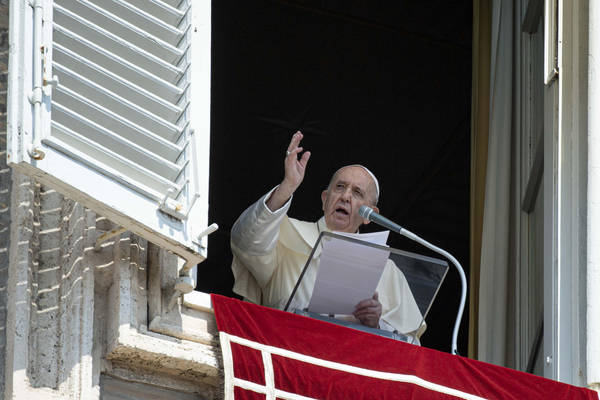Orban defence of Christianity under scrutiny as pope visits
Pope seven hours in Hungary, in Slovakia three days
10 September, 15:24Over the last few years, there has been no love lost between Orban supporters and the leader of the Catholic world. In a book last year, Pope Francis blasted populist and anti-migration political leaders, without explicitly mentioning Orban's name.
Pro-Orban media figures in Hungary meanwhile have called the pontiff "cretinous" and "senile" for his pro-refugee sentiments.
A politician from Orban's ruling Fidesz party also dubbed him the "Soros Pope", referring to the 91-year-old Hungarian-born US billionaire George Soros, a right-wing bete noire. And unlike neighbouring Slovakia and nearby Poland, Hungary remains predominantly secular despite Orban's professed bid to revive Christian identity suppressed under the four-decade-long communist era. In the last national census in 2011, only 39 percent of Hungarians identified as Catholics and 11 percent as Protestants. A new census has been delayed by the pandemic but experts estimate these figures haven't changed substantially.
Still, soon after coming into power in 2010, Orban oversaw a new constitution laden with references to God, Christianity and traditional family values. One of his flagship policies includes lavishly funding Church-run state schools. And parliament, controlled by Fidesz, earlier this year pushed through a law banning the "promotion of homosexuality" to under-18-year-olds, to the dismay of the LGBTQ community. That went some way towards the Vatican's hardline stance that homosexuality is "a sin", even though the pope himself has adopted a softer tone on homosexuality. According to Gyorgy Schopflin, a former Fidesz MEP, Orban, a liberal in his youth, has undergone a late conversion to religiosity, and "there is sincerity in it". "As the years have moved on it's more real than it used to be, perhaps. The Orban of the late 1980s and early 90s was less committed either to Catholicism or his own Calvinist Protestant background," Schopflin told AFP. - Orban's critics, however, accuse him of using Christianity as a shield to deflect criticism and a sword to attack opponents while targeting vulnerable minorities like migrants. "They are fake Christians who use religion as propaganda, but whose deeds are anything but Christian," Katalin Lukacsi, a former member of Fidesz's junior coalition partner the Christian Democrats, told AFP. In 2017 Lukacsi quit the party mainly because of the "humiliating vitriol aimed at the Pope", saying her membership "became incompatible" with her Catholic faith. To "represent Christian democracy" in the European Parliament, Orban is bidding to join forces with Italian far-right leader Matteo Salvini and Polish conservatives. Calling on European countries to protect "ethnic homogeneity", Orban's signature crusade against migration has provoked growing ire in Brussels, particularly over his harsh treatment of asylum-seekers. Last year, the EU's top court forced Orban to close heavily-guarded "transit zone" camps for asylum-seekers built into a border fence after it called them "illegal detention". EU courts have also ruled against the denial of food to asylum-seekers and their undocumented "pushback" across borders by police. According to Balazs Gulyas, a practising Catholic and journalist with the Magyar Hang newspaper, Orban merely practises "political Christianity". "The transit zone camps were inhuman and made me ashamed that they call themselves Christian," he told AFP. But Hungarian Catholics hope the pope's closure of the week-long congress won't be completely overshadowed by politics. "Thankfully no trace yet of politics or propaganda," Gulyas told AFP this week after leaving the congress's opening ceremony, hoping that would continue.
(ANSA-AFP).














